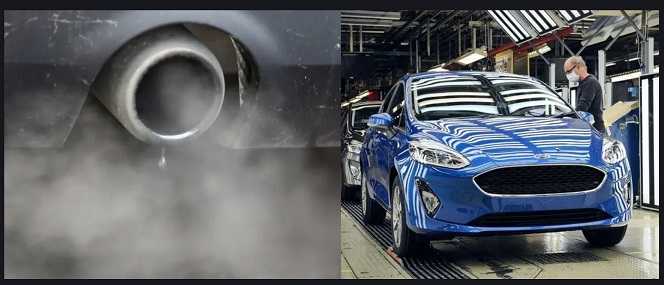Germany and other European countries will join forces to achieve a more lax Euro 7 emission regulation
The Euro 6 standards, which were introduced in 2014, set limits on the emissions of particulate matter and nitrogen oxides (NOx) from vehicles. Euro 7 further reduce these limits with a focus on reducing emissions from gasoline engines and introducing limits for ammonia emissions from diesel engines.

A bunch of European countries, including Germany, Italy, the Czech Republic, Poland, Portugal, Romania, Hungary, and Slovakia, are thinking about joining forces to try and make the Euro 7 emission regulations less strict than what was initially proposed. They want to work together to influence the final version of the regulations to be less strict.
The European Union says that the health benefits of the new Euro 7 emission regulations will be much greater than the costs. However, some countries don’t want to approve the regulations because they think it will cost car manufacturers a lot of money, especially when most investments focus on making electric cars.
The Czech Minister of Transport, Martin Kupka, wants to make that the conditions for the Euro 7 emission regulations are reasonable and met by car manufacturers. He believes the time given for the regulations to be adopted is too short, as the current proposal says they should be in place by mid-2025. He wants to make those car manufacturers have enough time to adjust to the new regulations and that regulations are achievable.
Martin Kupka, the Czech Minister of Transport, suggests that the car industry needs more time to adjust to the new Euro 7 emission regulations. He proposes extending the current timeline by four years to give the industry some breathing space.
He also suggests some technical changes that will make it easier for the industry to meet the regulations. Kupka believes that if Europe wants to become more carbon neutral, it’s important to implement measures achievable with current technology.

Euro 7 heavily criticized by the industry
Representatives from the countries mentioned earlier recently met in Strasbourg and agreed. They decided to work together and put pressure on the European Commission to create a proposal that would allow synthetic fuels to be exempt from the ban on the sale of cars with internal combustion engines in the European Union after 2035. That means they want to be able to sell cars that still use traditional gasoline or diesel fuels after 2035, but with synthetic fuels that produce lower emissions.
The European Association of Automobile Manufacturers (ACEA) recently expressed their concerns about the proposed timeline for the Euro 7 emission regulations. They said that the current schedule is not realistic.
They also pointed out that the Euro 7 regulations are not just an extension of the Euro 6 regulations that were introduced in 2014. Euro 7 is a more significant update that builds upon the criteria that were updated in 2020 with the Euro 6d standard. ACEA thinks it’s important to recognize the complexity of these regulations and ensure that car manufacturers have enough time to adjust to the changes.
Some groups, like Stellantis, have recently noted that the Euro 7 emission regulations could help Chinese car brands that are entering the European market with 100% electric cars. The CEO of Stellantis, Carlos Tavares, thinks that the new regulations will make it harder for European car manufacturers to invest in electric mobility because they will need to divert some of their investments to meet the new Euro 7 standards. That could give Chinese car brands an advantage in the market since they won’t need to make the same investments to meet the new regulations.
Some people believe that Europe doesn’t need the Euro 7 emission regulations. They argue that these regulations will divert the resources of European car manufacturers away from developing electric cars, while Chinese competitors are only entering the market with battery electric vehicles.
They think it doesn’t make sense to focus on a technology that Europe wants to ban in the long run, and it would be better to invest in electric cars instead. In short, they believe that the resources should be put into the technology that will be the future rather than investing in the old technologies that be banned.
Related Post
